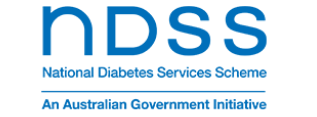What are reasonable adjustments?
Reasonable adjustments are practical changes or supports that schools agree to implement to help students with type 1 diabetes manage their condition effectively during school hours. These adjustments aim to ensure that students can participate fully in all school activities without being disadvantaged due to their health needs.
Examples of reasonable adjustments
Reasonable adjustments may include:
- allowing the student to eat snacks during class to manage blood glucose levels
- permitting access to blood glucose monitoring equipment and insulin during school hours
- providing a private space for blood glucose checks or insulin administration, if preferred
- allowing extra time or breaks during exams for blood glucose monitoring or treatment
- facilitating additional toilet breaks as needed
- ensuring staff are trained to recognise and respond to signs of a low or high glucose level.
Disability Standards for Education 2005 (DSE)
Learn more about reasonable adjustments in Part 3. Parts 4 to 8 explain how education and training should be made accessible. The start of each part includes a note about what rights it gives to students.
Importance of the diabetes management plan
A student’s diabetes management plan is a crucial document developed collaboratively by the student’s health professional(s) and parents or legal guardians. The school uses this plan to support decisions on agreed-upon adjustments that help meet the student’s individual needs. This plan serves as a guide for school staff to provide consistent and appropriate care.
Ongoing review and adaptation
As students grow and their needs change, it’s essential to regularly review and update the diabetes management plan and the associated reasonable adjustments. This ensures that the support provided remains effective and appropriate.
Collaborative decision-making
Determining reasonable adjustments is a shared responsibility involving:
Students (when age appropriate)
Encourage students to share their preferences for managing diabetes at school, including where and when to check blood glucose levels, give insulin, and how to handle their medical equipment. Their input helps ensure practical adjustments that respect their comfort and privacy.
Parents or carers
Provide insights into the student's daily management needs and collaborate with the school to develop and provide an up-to-date diabetes management plan.
School staff
Implement and monitor the agreed-upon adjustments, ensuring that the student's needs are met consistently throughout the school day.
Health professionals
Offer medical guidance to inform the adjustments, ensuring they are safe and effective for the student's diabetes management.
It’s important to note that each student’s needs are unique, and adjustments should be tailored accordingly. Not all students will require the same support, and schools will need to consider their resources when determining feasible adjustments.
The Disability Standards for Education in Practice: Action Plan is a resource to help plan and set up reasonable adjustments at school.
Legal obligations for schools
Under Australian law, specifically the Disability Discrimination Act 1992 (Cth) and the Disability Standards for Education 2005 (Cth), schools are legally required to make reasonable adjustments for students with disabilities, including type 1 diabetes. Failing to do so may constitute unlawful discrimination.
More information and resources
Advocating with and for your child: A workbook for parents and carers
A resource the helps parents and caregivers of primary school students to plan and set up reasonable adjustments with and for their child.
Australian Human Rights Commission – Complaints
The Australian Human Rights Commission administers the Acts and decides what to do if there’s a complaint about disability discrimination covered by Australian Government law.
Disclaimer:
The content of this page is only intended to provide a general guide to the subject matter. The exact legal position and requirements that will apply will always depend on your individual and surrounding circumstances. The information on this page does not in any way constitute legal advice and should not be relied upon as such. If you need legal advice, we recommend that you consult with a qualified legal professional for specialist advice about your specific circumstances.
Last updated: September 2025


